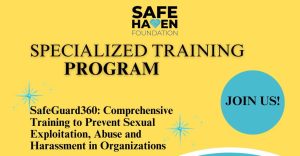Have you ever considered the profound impact of violence on family dynamics? In the aftermath of traumatic experiences, parents face the daunting task of not only healing themselves but also guiding their children through the recovery process. Let’s explore how targeted parenting support can make a world of difference for families affected by violence.
Understanding the Ripple Effect of Violence on Families
Violence doesn’t just affect individuals; it sends shockwaves through entire family systems. Parents who have experienced or witnessed violence may struggle with:
- Emotional regulation: Difficulty managing their own emotions
- Trust issues: Challenges in forming and maintaining relationships
- Parenting confidence: Uncertainty about their ability to care for their children
- Hypervigilance: Constant state of alertness that can be exhausting
- Mental health concerns: Increased risk of depression, anxiety, and PTSD
Meanwhile, children in these families might experience:
- Behavioral problems: Acting out or withdrawing
- Developmental delays: Challenges in reaching age-appropriate milestones
- Emotional instability: Difficulty processing and expressing feelings
- Academic struggles: Concentration issues and lower performance in school
- Relationship difficulties: Trouble forming healthy attachments
Understanding these interconnected challenges is the first step in providing effective support.
The Crucial Role of Parenting Support in Recovery
Parenting support programs tailored for families affected by violence play a vital role in breaking the cycle of trauma. But what exactly do these programs offer?
Key Components of Effective Parenting Support:
- Trauma-Informed Care:
- Recognizes the widespread impact of trauma
- Integrates knowledge about trauma into policies and practices
- Actively seeks to avoid re-traumatization
- Skill-Building Workshops:
- Positive discipline techniques
- Emotion coaching for children
- Stress management for parents
- Therapeutic Interventions:
- Individual counseling for parents and children
- Family therapy sessions
- Play therapy for younger children
- Safety Planning:
- Creating and implementing family safety plans
- Identifying triggers and coping strategies
- Peer Support Groups:
- Connecting parents with others who have similar experiences
- Fostering a sense of community and reducing isolation
- Parental Self-Care Education:
- Emphasizing the importance of self-care for effective parenting
- Providing resources and techniques for stress reduction
The Journey of Healing: A Family Affair
Recovery from violence is not a linear process, and it affects each family member differently. Parenting support programs recognize this and offer personalized approaches to healing.
Stages of Family Recovery:
- Safety and Stabilization:
- Ensuring physical safety
- Establishing routines and predictability
- Addressing immediate mental health needs
- Acknowledgment and Processing:
- Creating safe spaces for family members to express feelings
- Validating experiences and emotions
- Beginning to process traumatic events in age-appropriate ways
- Skill Development:
- Learning new communication patterns
- Developing healthy coping mechanisms
- Practicing positive parenting techniques
- Rebuilding and Growth:
- Strengthening family bonds
- Setting new family goals
- Fostering resilience and hope for the future
Throughout these stages, parenting support programs offer guidance, resources, and a compassionate presence to help families navigate their unique paths to healing.
Innovative Approaches in Parenting Support
As our understanding of trauma and recovery evolves, so do the methods used to support affected families. Some cutting-edge approaches include:
- Virtual Reality Therapy: Allowing parents and children to process trauma in controlled, immersive environments
- Mindfulness-Based Programs: Teaching meditation and mindfulness techniques to both parents and children
- Animal-Assisted Therapy: Incorporating interactions with trained animals to promote healing and bonding
- Expressive Arts Programs: Using art, music, and dance as therapeutic tools for the whole family
- Technology-Aided Support: Developing apps for ongoing support and skill reinforcement between sessions
These innovative methods, combined with traditional therapeutic approaches, offer families a diverse toolkit for recovery.
Overcoming Barriers to Support
Despite the availability of parenting support programs, many families face obstacles in accessing these crucial services. Common barriers include:
- Stigma: Fear of judgment or shame in seeking help
- Financial constraints: Inability to afford services or take time off work
- Lack of awareness: Not knowing that specialized support exists
- Transportation issues: Difficulty accessing services, especially in rural areas
- Language barriers: Limited availability of culturally competent services
To address these challenges, many organizations are:
- Offering sliding scale fees and free programs
- Providing remote and mobile services
- Conducting community outreach and education
- Collaborating with schools and healthcare providers for easier access
- Training staff in cultural competency and offering multilingual services
The Ripple Effect of Healing
When families receive the support they need to heal from violence, the positive impact extends far beyond the immediate family unit. We see:
- Stronger communities: As families heal, they become more engaged in community life
- Reduced cycle of violence: Breaking intergenerational patterns of trauma and abuse
- Improved public health: Decreased burden on healthcare and social service systems
- Enhanced educational outcomes: Children perform better in school, leading to brighter futures
- Economic benefits: Parents are better able to maintain employment and contribute to the economy
By investing in parenting support for families affected by violence, we invest in the fabric of society itself.
How You Can Make a Difference
You might be wondering, “What can I do to support these families?” Here are ways you can contribute:
- Educate yourself: Learn about the impacts of violence on families and the importance of support
- Volunteer: Offer your time or skills to local organizations providing family support services
- Donate: Support programs financially if you’re able
- Advocate: Push for policies that fund and expand access to parenting support programs
- Be a supportive friend or neighbor: Create a nurturing community for families in need
- Share resources: Spread information about available support services in your area
Remember, every action, no matter how small, contributes to a larger network of support for families in need.
Conclusion: Nurturing Hope, One Family at a Time
Parenting support for families affected by violence is more than just a service—it’s a lifeline that can transform lives and break cycles of trauma. By providing compassionate, comprehensive support, we empower parents to create safe, nurturing environments where both they and their children can heal and thrive.
As we continue to develop and improve these support systems, we move closer to a world where every family has the resources they need to recover from violence and build a brighter future. The journey of healing may be long and challenging, but with the right support, families can not only recover but flourish.
What steps will you take today to support families affected by violence in your community? How can we all work together to create a society where every family has the opportunity to heal and grow?




